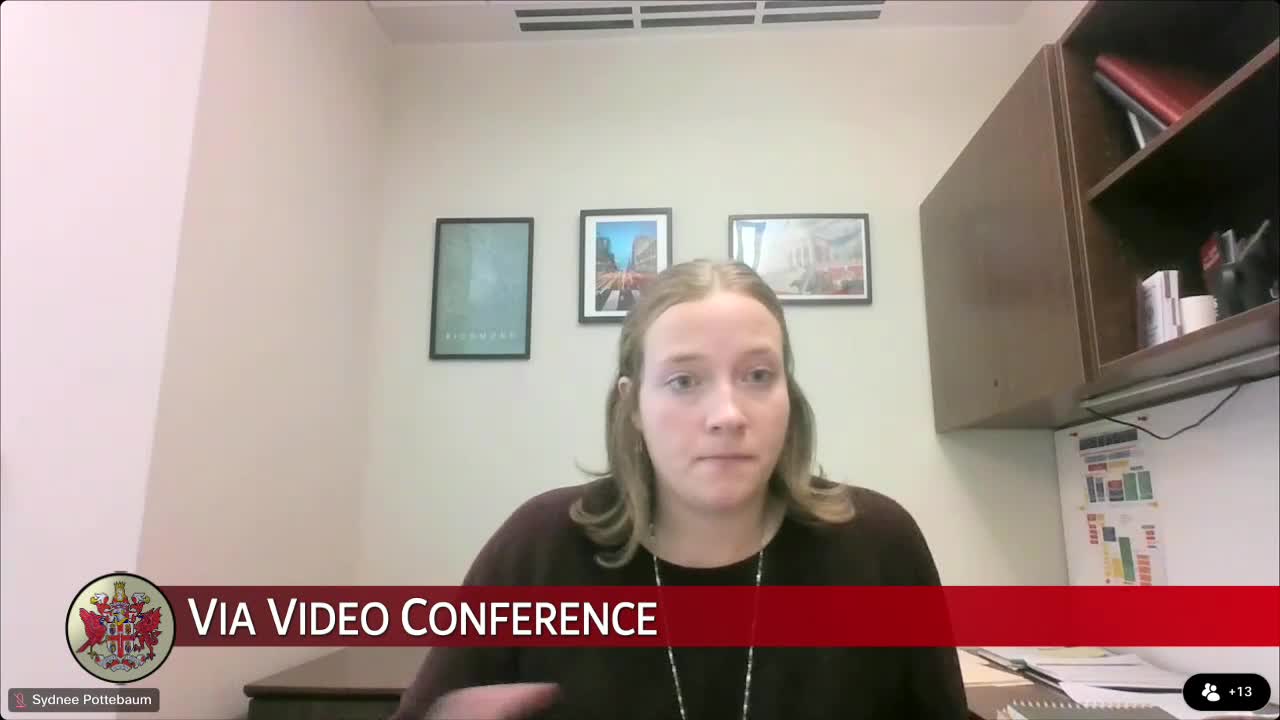Families, providers urge lawmakers to raise Medicaid waiver rates, shore up caregiver pay and clear DD waiting list
Get AI-powered insights, summaries, and transcripts
Subscribe
Summary
Families, disability service providers and union representatives told the joint House and Senate appropriations committees that Virginia needs higher Medicaid waiver rates, better pay for direct care workers, protection for respite services and funding to address a 15,000‑plus developmental disability waiver waiting list.
Members of the public and provider groups urged the House Appropriations Committee and Senate Finance and Appropriations Committee to increase rates under Medicaid waivers, raise wages for direct care staff and expand core supports for people with intellectual and developmental disabilities.
The issue reached the committees during a regional virtual budget hearing convened by Delegate Luke Torian, who opened the session and explained its purpose. Multiple speakers described caregiving shortages and financial pressure on providers and families.
The Nut Graf: Speakers said low provider rates and low pay for direct support professionals are driving turnover and limiting services, and they asked lawmakers for immediate rate increases, a better DMAS rate study process, and funding to create or pilot “core services” while people remain on the developmental disability (DD) waiver waiting list.
Providers and family members gave specific examples. Denolda Jones, owner and CEO of Foundation Supportive Care LLC, asked lawmakers to “match the reimbursement rates for supported living…to those of group homes” and to reform Medicaid Works rules that she said force people to choose between work and services. Jones said low rates keep providers from offering supported living programs she described as “customized supports in smaller or residential settings.”
Michael Thomas, board president of The Arc of Northern Virginia, told legislators his son’s DD waiver helped the family secure group home care and day program placement. Thomas urged funding for a $250,000 study of “core services,” calling them “basic, highly efficient and low cost care” that could prevent crises while people remain on the waiting list. He and other speakers repeatedly cited the figure of “15,000 plus individuals” on the DD waiver waiting list.
Union leaders and direct care workers pressed for higher wages and policy changes. Leonorell Thomas, president of SEIU Virginia 512, said many home care workers earn “less than $15 an hour” and urged lawmakers to legalize collective bargaining for public employees and home care providers. Samira Brooks, a home care worker of 23 years, described working 60–80 hour weeks to make ends meet and said low pay forces many experienced caregivers to leave the field.
Family members described the consequences of the current system. Andy Rankin, a Falls Church resident and father of a 17‑year‑old with a rare genetic disorder, asked legislators to allow parents who must serve as paid attendants to keep respite supports. Mary McFarland, a former caregiver whose daughter died while awaiting a generator, urged updates to waiver equipment grants (currently $5,000) and compensation changes to reflect caregiving realities.
Several speakers criticized the Department of Medical Assistance Services (DMAS) rate study process. Joanne Aceto, representing Virginia ACCESS, said the Guidehouse study “was put together with no input from the provider community” and that the timeline and methodology risk producing unusable results. Christina McCall of The Arc of Greater Prince William made a similar point, asking that DMAS “include provider input and allow a reasonable timeline.”
Speakers also asked for narrower policy fixes: ending a 16‑hour cap that limits how many hours a caregiver may be paid, funding to start new providers, workforce retention incentives and comments that respite rules can penalize parents who temporarily serve as paid attendants. Susan Keenan, executive director of Community Living Alternatives, thanked lawmakers for an anticipated 3% rate increase but said “not knowing when and how often we can count on those rate increases creates a lot of anxiety for our workforce.”
What lawmakers heard, not decided: The session collected testimony and requests but recorded no formal committee votes or directives. Multiple speakers urged the General Assembly to fund immediate increases, adopt workforce retention measures and ensure the DMAS rate study reflects provider cost data before finalizing recommendations.
Ending: Speakers asked legislators to consider short‑term investments that could stabilize the field (rate increases, funds for new providers and respite policy changes) and longer‑term reforms to the waiver and Medicaid Works rules. Lawmakers present said they would take testimony into account as the budget process continued.
